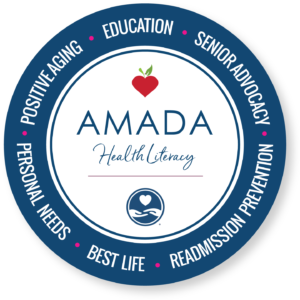May is National High Blood Pressure Education Month, a time to raise awareness about hypertension and its impact on our health as we age. As we navigate the ever-evolving landscape of medical advancements, many wonder if we are close to finding a cure for hypertension, a condition that affects millions of seniors worldwide.
What is Hypertension, Also Known as High Blood Pressure?
Hypertension, or high blood pressure, is a chronic condition that occurs when the force of blood against the artery walls is consistently too high. Hypertension is often called the silent killer because it usually presents no noticeable symptoms until it has already caused significant damage to the cardiovascular system. In older adults, hypertension is a leading risk factor for heart disease, stroke, kidney problems, and other serious health issues.
What are the Causes of Hypertension in Seniors?
High blood pressure can is a health condition that can affect individuals of any age but the Centers for Disease Control and Prevention estimates that 70 percent of U.S. adults age 65 and older have hypertension but don’t know it. There are several potential causes and risk factors for hypertension in seniors. Here are some common ones:
- Age-related changes: As individuals age, their blood vessels naturally become less elastic and more rigid, which can contribute to an increase in blood pressure.
- Lifestyle factors: Unhealthy lifestyle choices can significantly contribute to hypertension. These factors may include a sedentary lifestyle, poor dietary habits (high salt intake, low potassium intake), excessive alcohol consumption, smoking, and being overweight or obese.
- Genetics: Family history and genetics play a role in hypertension. Seniors with a family history of high blood pressure are more likely to develop the condition themselves.
- Underlying medical conditions: Certain medical conditions become more prevalent with age and can contribute to hypertension. These include chronic kidney disease, diabetes, sleep apnea, thyroid disorders, and adrenal gland disorders.
- Medications: Some medications, including certain over-the-counter drugs and prescription medications, may raise blood pressure as a side effect. Seniors are often taking multiple medications, increasing the likelihood of this potential cause.
- Stress: Chronic stress or prolonged exposure to stressful situations can lead to elevated blood pressure levels.
- Hormonal changes: Hormonal imbalances, such as those related to menopause in women, can contribute to increased blood pressure.
There are some uncommon potential causes of high blood pressure, too, according to the AARP, including air pollution, eating black licorice, consuming added sugars, and not having a healthy social life.
What Can Seniors Do to Lower High Blood Pressure?
While a definitive cure for hypertension is yet to be discovered, medical research has made significant strides in understanding and managing the condition. Consider the following:
Senior Lifestyle Modifications: Lifestyle changes play a crucial role in managing blood pressure. Regular physical activity, maintaining a healthy weight, reducing sodium intake, and adopting a balanced diet rich in fruits, vegetables, and whole grains have shown positive effects on blood pressure control.
Medications: Various classes of antihypertensive medications are available to manage blood pressure effectively. These include diuretics, ACE inhibitors, angiotensin II receptor blockers, beta-blockers, calcium channel blockers, and others. Working closely with a healthcare professional is essential to finding the most suitable medication regimen.
Technology and Monitoring: Technological advancements have brought about innovations in blood pressure monitoring. Home blood pressure monitors, wearable devices, and smartphone applications enable individuals to monitor their blood pressure regularly, empowering them to take proactive steps in managing their condition.
Consult with a Healthcare Professional: Regular check-ups are vital for managing hypertension. Consult with a healthcare professional who can assess your blood pressure, discuss your medical history, and recommend appropriate lifestyle changes or medication adjustments.
Adopt a Heart-Healthy Lifestyle: Embrace a well-balanced diet low in sodium and high in fruits, vegetables, lean proteins, and whole grains. Engage in regular physical activity such as walking, swimming, or yoga to promote cardiovascular health.
Manage Stress: Chronic stress can contribute to elevated blood pressure levels. Explore stress management techniques such as meditation, deep breathing exercises, and engaging in hobbies that bring joy and relaxation.
Limit Alcohol Consumption: Excessive alcohol consumption can raise blood pressure. If you drink alcohol, do so in moderation or consider avoiding it altogether.
Quit Smoking: Smoking damages blood vessels and increases the risk of heart disease. Seek support and resources to quit smoking and improve your overall cardiovascular health.
While a definitive cure for hypertension remains elusive, progress has been made in understanding and managing this condition. By adopting a heart-healthy lifestyle, working closely with healthcare professionals, and utilizing technology for monitoring, seniors can take control of their blood pressure and reduce the associated health risks. As we observe National High Blood Pressure Education Month, let us commit to prioritizing our cardiovascular health and spreading awareness about the importance of blood pressure management.
Remember, small steps today can lead to significant improvements in the long run. If you need assistance in managing high blood pressure from a trained Amada caregiver, please don’t hesitate to reach out to talk to an experienced and knowledgeable Amada Senior Care advisor. You can find the Amada office closest to you by CLICKING HERE.
“Are We Close to a Cure for Hypertension in Seniors?” written by Michelle Flores, Amada blog contributor.















